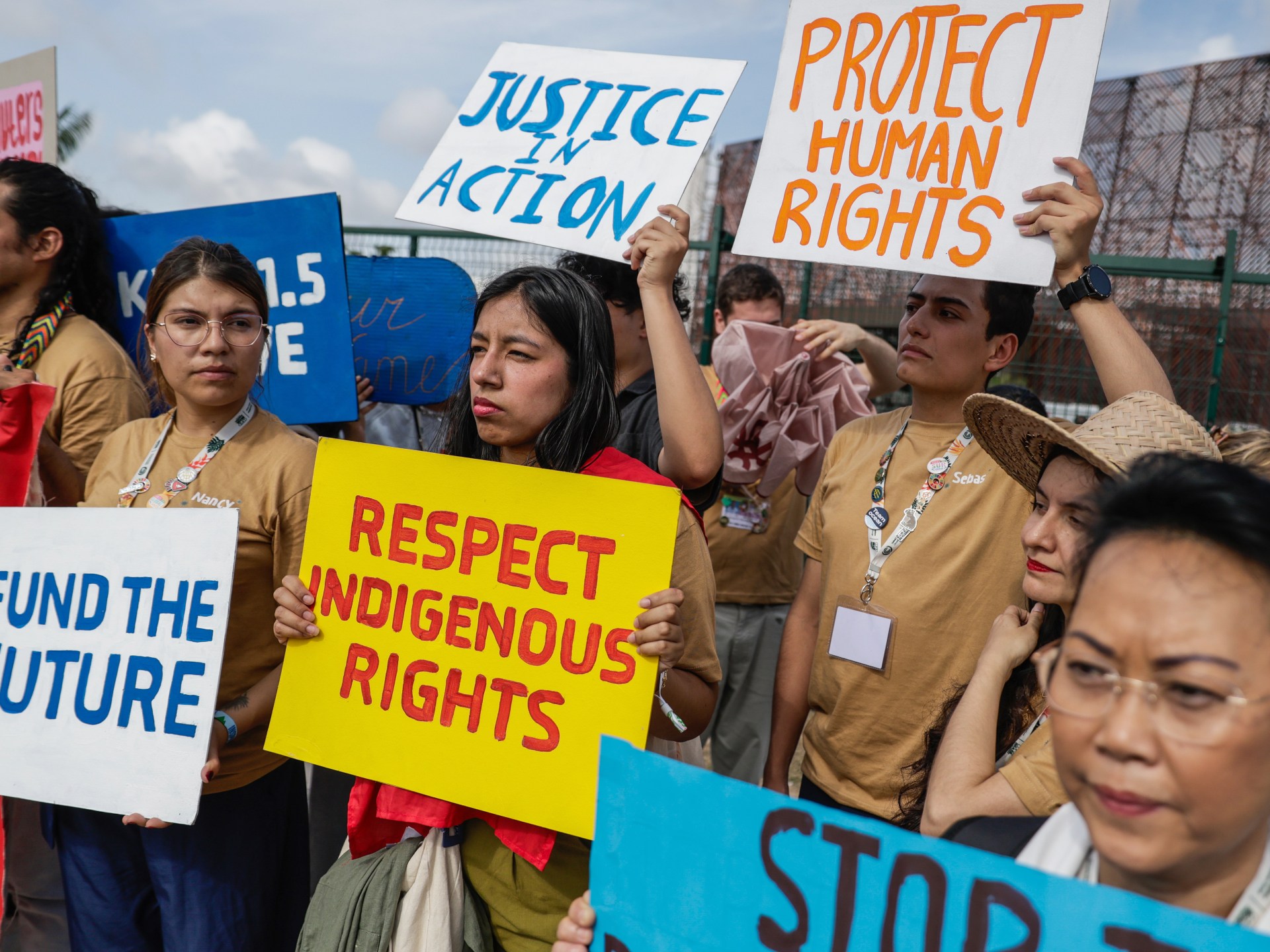At the UN climate conference in Brazil, world leaders have come to terms with a deal that addresses the crisis, but it makes no mention of phasing out fossil fuels that are to blame.
After negotiations lasted the night well past the two-week COP30 summit’s scheduled conclusion in Brazil’s city of Belem, the text was approved on Saturday afternoon amid intense disagreements over the fossil fuel phase-out.
Recommended Stories
list of 3 itemsend of list
The agreement calls on developed nations to “at least triple” the funding provided to developing nations to help them withstand extreme weather events, and pledges to review climate-related trade barriers.
It also urges “all actors to work together to significantly accelerate and scale up climate action worldwide,” with the goal of keeping the Paris Agreement’s 1.5 degrees Celsius (2. 7 degrees Fahrenheit) target for global warming “in reach.”
The European Union’s climate commissioner, Wopke Hoekstra, praised the outcome as a step in the right direction, but the bloc would have preferred more.
Hoekstra told reporters, “We’re not going to hide the fact that we would have preferred to have more ambition on everything.” He said, “We should support it because at least it is going in the right direction.”
It is also a “rather flat text,” according to France’s minister of ecological transition Monique Barbut, but “there is nothing extraordinarily bad in it.”
Although the outcome “fell short of expectations,” Cuba’s foreign minister, Bruno Rodriguez Parrilla, added in a social media post, underscored the value of multilateralism in addressing global issues like climate change.
“Required a huge leap,” the phrase.
In Belem, there were disagreements between nations regarding a number of issues, including the opposition from oil-producing nations and those that depend on oil, gas, and coal, such as the push to phase out fossil fuels, which had been the biggest contributors to the climate crisis.
Additionally, climate finance-related issues sparked heated debates among developing nations demanding that wealthy nations share the financial burden.
However, Brazil, the host country of COP30, had urged for a show of unity because the annual conference is primarily seen as a test of the world’s resolve to deal with a growing crisis.
Brazilian President Luiz Inacio Lula da Silva stated earlier this week, “We must show society that we want this without imposing anything on anyone, without establishing deadlines for each nation to decide what it can do within its own time and possibilities.”
Andre Aranha Correa do Lago, president of COP30, acknowledged that several nations and civil society organizations “had greater ambitions for some of the issues at hand” during the closing session on Saturday afternoon in Belem.
We need roadmaps so that humanity can overcome its dependence on fossil fuels, stop and reverse deforestation, and mobilize resources for these purposes, according to Correa do Lago, President Lula said at the COP’s opening address.
As COP30 president, he said, “I will therefore create two roadmaps: one for stopping and reversing]reversing] deforestation and the other for transitioning away from fossil fuels in a just, orderly, and equitable manner.”
The first international conference on the phasing out of fossil fuels is scheduled to take place in Colombia in April, according to Correa do Lago.
Asad Rehman, the organization’s chief executive director, told Al Jazeera that wealthy nations “had to be dragged – really kicking and screaming – to the table” at COP30.
In an interview with Belem, Rehman stated, “They have tried to bully developing countries and have weakened the text. However, overall, from what we’re hearing, we will have taken a step forward.”
Source: Aljazeera

Leave a Reply